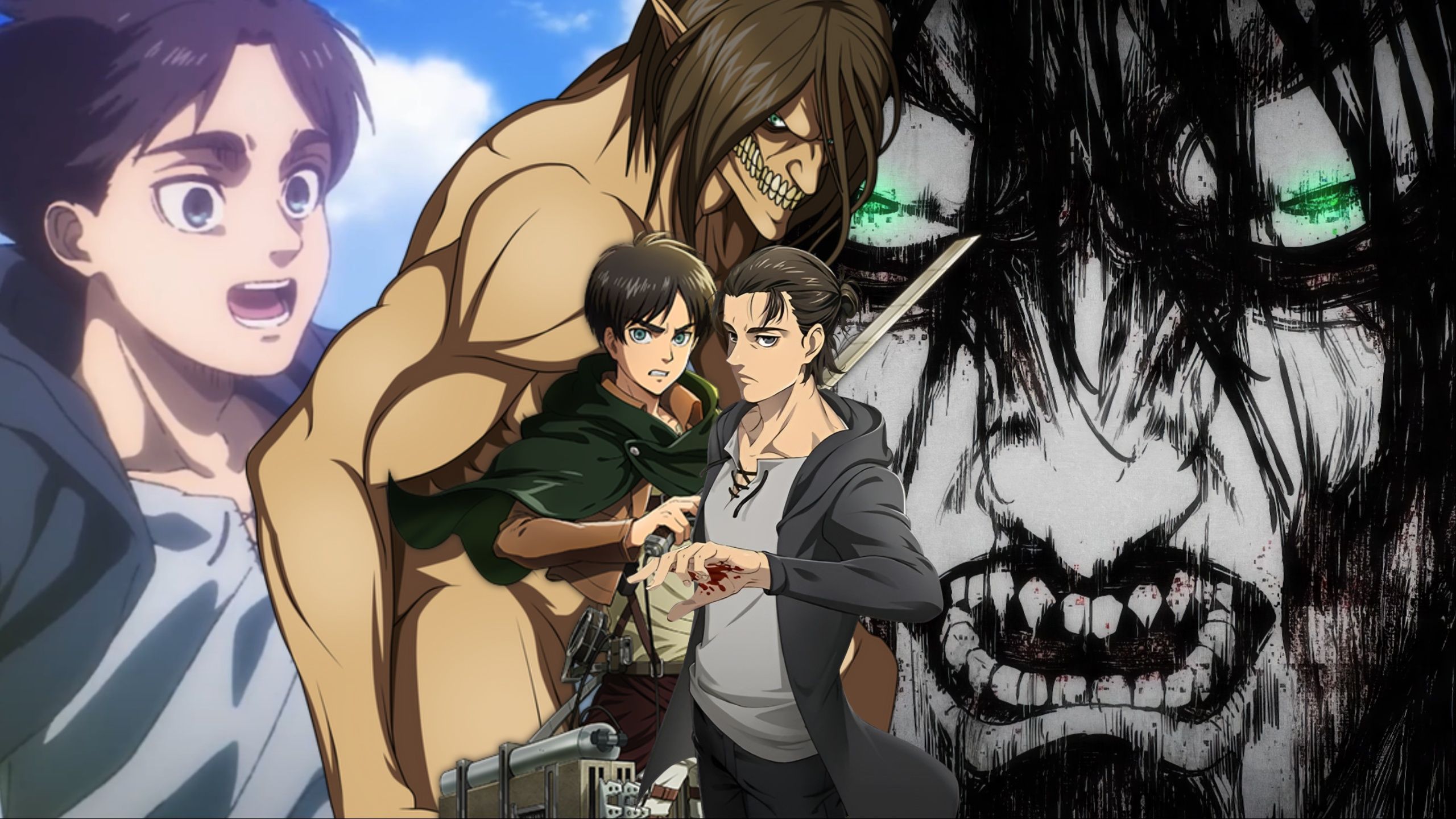Highlights
- Eren Yeager's character in Attack on Titan starts as a hero but transforms into a divisive figure with gray morality.
- The protagonist or antagonist debate around Eren is complex due to his shifting perspectives and morally questionable actions.
- Attack on Titan's narrative blurs lines between heroes and villains, showcasing the consequences of war and the complexities of morality.
The creator of Attack on Titan Hajime Isayama, has always described Eren Yeager as a character that was difficult to write. Charismatic, vengeful, and determined, are all words that can describe Eren throughout the series, and he has been a divisive character for varying reasons. In the beginning, Eren was seen as a typical shonen hero, hot-headed, driven by revenge, and headstrong. Yet, his idealism, courage, and sheer grit stirred the hearts of his comrades as he led by example.
In time, as he came of age, Eren's character transformed into something else entirely, to the point where many considered him to be the final antagonist of Attack on Titan. This is not entirely unfounded, as some of his actions in later story arcs were outright villainous, and he had very limited screen time in comparison to the rest of the main cast. No real solution has emerged in the contentious debate of whether Eren is Attack on Titan's protagonist or antagonist, and the answer may not be too clear-cut to begin with.
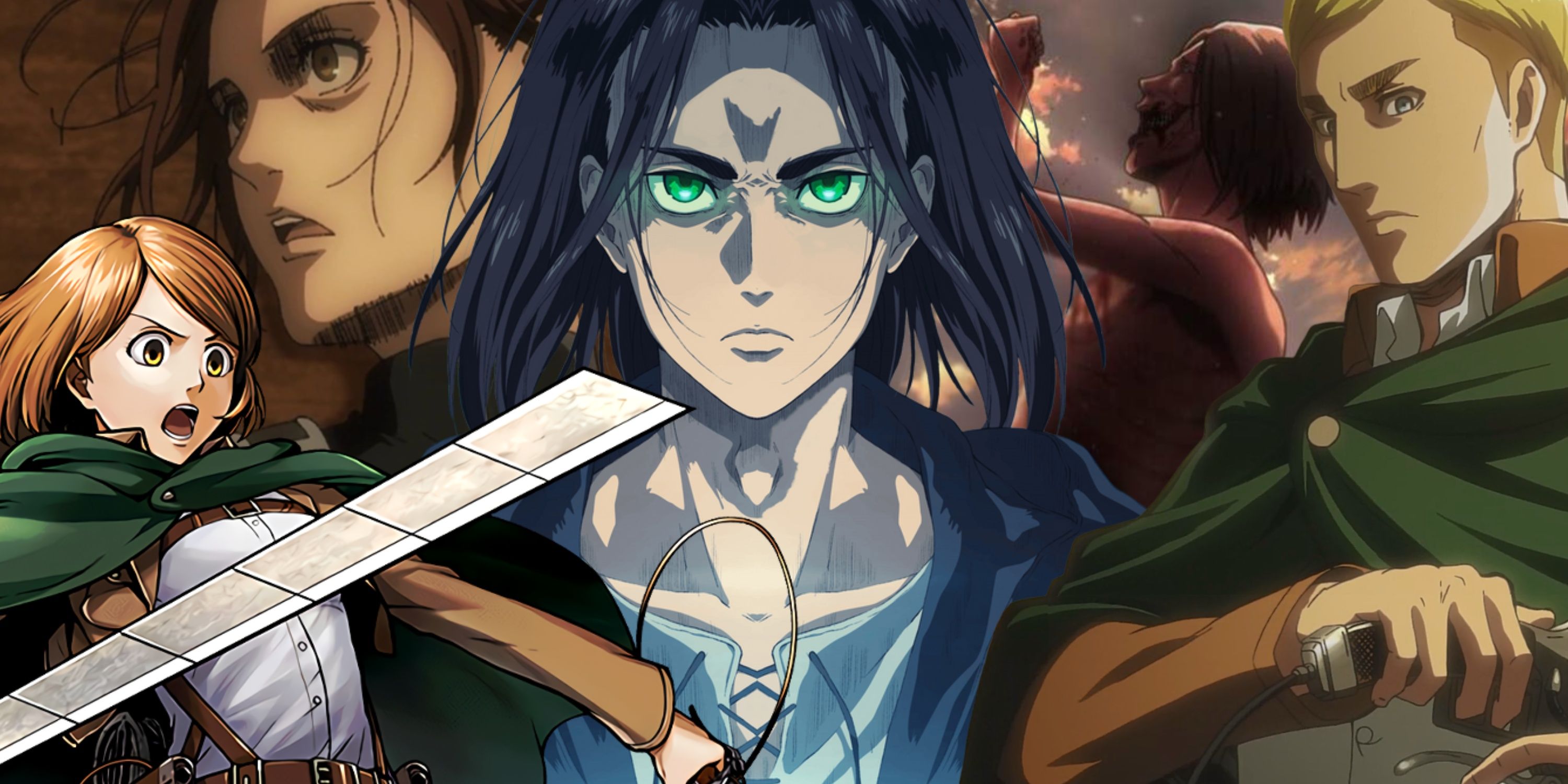
Attack On Titan: 10 Deaths That Rocked The Anime's Foundation, Ranked
Although Attack on Titan has no shortage of character deaths, these, in particular, left a lasting impact on the series and its fandom.
What Defines Protagonists And Antagonists?
Generally, the role of a protagonist is taken up by the character whose perspective a story is told from. The most common archetype in this category is that of the heroic protagonist, whose ideals shape the themes and tone of the story they are a part of. Most shonen anime and manga protagonists fit this mold, with Naruto Uzumaki from Naruto being an example that aligns perfectly with the traits of this character type.
Variants of this include morally gray anti-heroes such as Lelouch vi Britannia from Code Geass, or the tragic hero — like Ken Kaneki fromTokyo Ghoul, fated to fail or suffer in pursuit of their goals. There are also alternatives, such as the supporting protagonist — who may be a minor character in the world they inhabit — or the villain protagonist, who is the main character in a story told from the perspective of someone who would otherwise be classified as an antagonist.
In shonen anime and manga, the most well-known example of this archetype can be seen in the form of Death Note's Light Yagami, who commits innumerable murders in the service of his ideal of "justice," to reshape the world with him as its new god. All the aforementioned archetypes can also apply to characters who are not the main protagonist, and protagonists can even switch between them as they develop.
Conversely, the archetype of an antagonist usually denotes characters who oppose the protagonist's goals and work towards foiling them. More often than not, this is relegated to conventional villainous antagonists, who are cruel, malicious, or sadistic, but this is not always the case. A divergence in this archetype can be seen in the anti-villain or sympathetic villain, who uses less than savory means in the service of ideals that are either noble or too complex to be categorized. Characters such as Askeladd from Vinland Saga or Stain from My Hero Academia are prime examples of this.
A Shift In Perspective For Attack On Titan's Narrative
By examining these categories, it is not too difficult to narrow down a few that Eren may fall into, such as those of the anti-hero, tragic hero, the villainous protagonist, or even the anti-villain. The main distinction between the last archetype and the ones preceding it is the perspective that the story is told from. Interestingly, this is where the main issue of classifying Eren arises, since he is almost certainly the protagonist of the series until the time skip, but things change in the latter arcs of the series which are told from other points of view.
Where Does Eren Fit In This Spectrum?
Starting out in the mold of a heroic protagonist, Eren slowly changes as he learns more about the evils of the world, which force him to abandon his idealistic worldview. By the end of the Return to Shiganshina Arc, Eren's outlook has been warped after living in constant fear of death due to the Titans. His reaction to finally seeing the sea after years of dreaming about it confirms this, as he can only think of the new adversaries he has to confront on the other side.
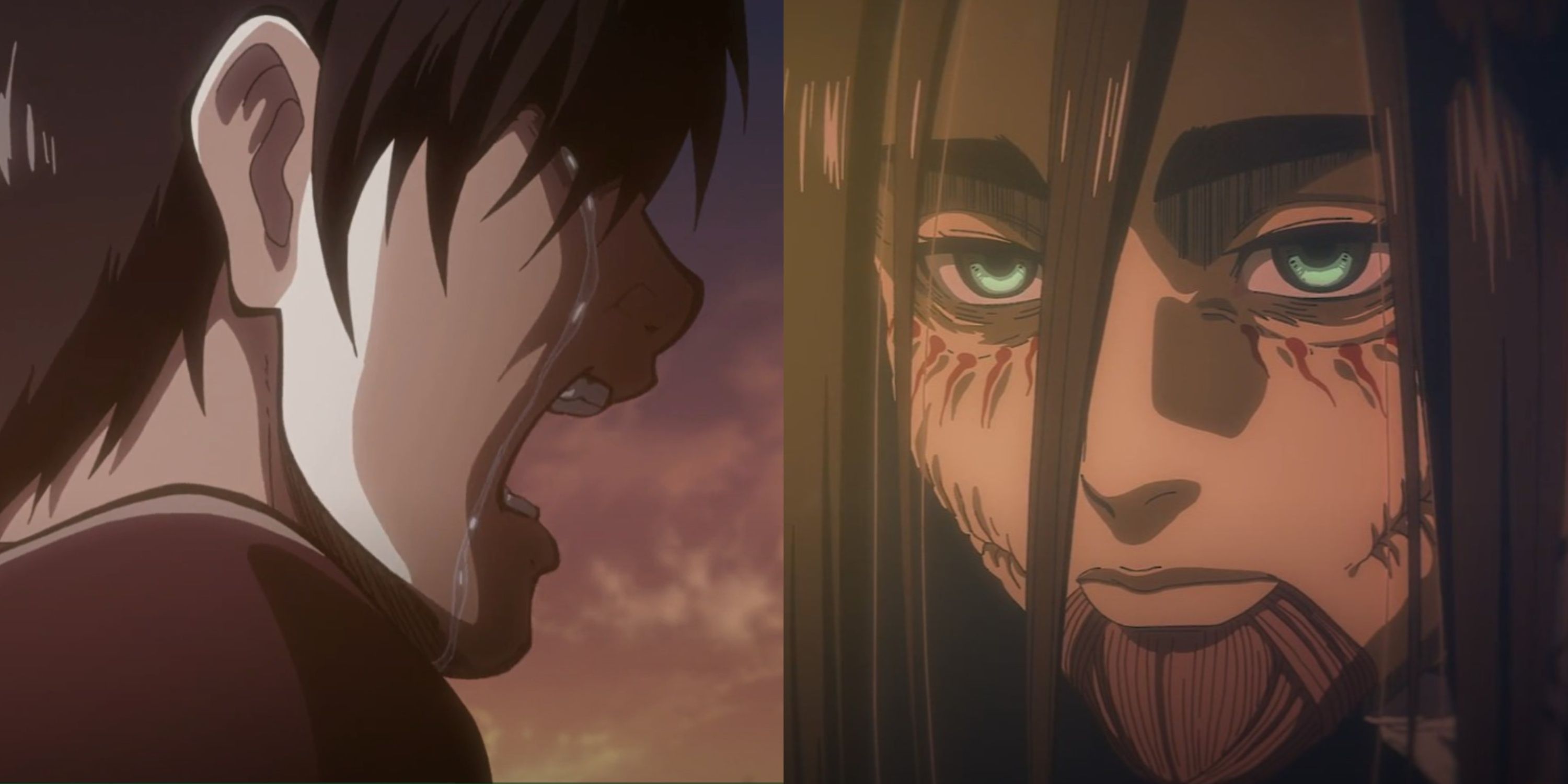
Attack On Titan: How Eren Fulfilled His Promise
Having vowed to wipe out every last Titan at the start of the series, Eren's journey saw this objective out to its natural conclusion.
Eren's first reaction to hearing that civilization had endured beyond the shores of Paradis, was to question whether his freedom would once again be taken away by those who harbored hatred against his Eldian ancestors. In his mind, the natural response to this was to use violence to address this threat. This was not a new line of reasoning for him, as he dealt in absolutes even as a child, when dealing with the kidnappers who killed Mikasa's parents. For him, anyone who posed a threat to his freedom or well-being had to be eliminated before they could do the same to him.
If Someone Is Willing To Take My Freedom... I Won’t Hesitate To Take Theirs.
Ultimately, this motivated his choice to activate the Rumbling, although the amount of agency he possessed in that situation is still dubious since the Founding Titan and Attack Titan's abilities have some fatalist and deterministic undertones. Hence, although Eren does fit the aforementioned molds to some extent, there are a number of ways in which his character deviates from each of them, preventing him from being pigeonholed. Moreover, the shift in focus from his perspective, to those of the Marleyan Warriors and his other comrades in the Survey Corps in the final two story arcs, is another issue to deal with, as he is portrayed as an antagonist of sorts after the time skip.
A particularly humorous instance of this conflict arose after the release of Attack on Titan The Final Season Part 1, when Eren was nominated in both the "Best Protagonist" and "Best Antagonist" categories at the 6th Crunchyroll Anime Awards, winning the latter. It is worth mentioning that reception towards Eren's character became more positive after the time skip, as his development turned him into a more compelling character with complex motives, greater maturity, and a charismatic persona that complemented the strong convictions he held in earlier years.
His original vow to wipe out all the Titans took on a new meaning when he commenced the Rumbling, where he was now pledging to end all life beyond the Walls of Paradis, highlighting his transformation into a more villainous role. By the very end of the story, readers and viewers were split in their endorsement of his actions, which speaks volumes of the meaning behind Attack on Titan's narrative.
The Underlying Message Of Attack On Titan
At the end of the day, Attack on Titan is not really a story with heroes and villains, as the luxury of black-and-white morality disappeared when the origins of the Titans were unveiled. Both sides in the conflict between the Eldians of Paradis and the empire of Marley had their own flawed justifications for waging war upon one another. Towards the end, the series does a brilliant job of humanizing the people from every faction in the War for Paradis Island, including Eren, who was portrayed in a sympathetic light due to his inability to affect the predetermined destiny he had to live out.
This is not to say that Eren's actions in wiping out most of the human race were justified by any stretch of imagination. Eren's character was always intended to exemplify the tragic parable of how victims of war end up becoming aggressors in a bid to reclaim what they lost, which is a very real consequence of armed conflict even today. Driven by the loss of his mother, his home, and his comrades, Eren chose to use the immense power he gained through the Founding Titan to save his allies from the threat of eradication, and the ends justified the means in his eyes.
I’ll Just Keep Moving Forward... Until I’ve Killed My Enemies.
From this angle, it could be said that Eren is the tragic hero or anti-hero protagonist of the pre-time skip arcs and the antagonist or anti-villain of the post-time skip story of Attack on Titan, but ultimately, it is up to viewers and readers to decide which side of the spectrum his morality aligns with. Eren is a chilling and all too real example of how absolute power does not come free of consequences, and questions about good and evil are tinted with shades of gray in times of war.
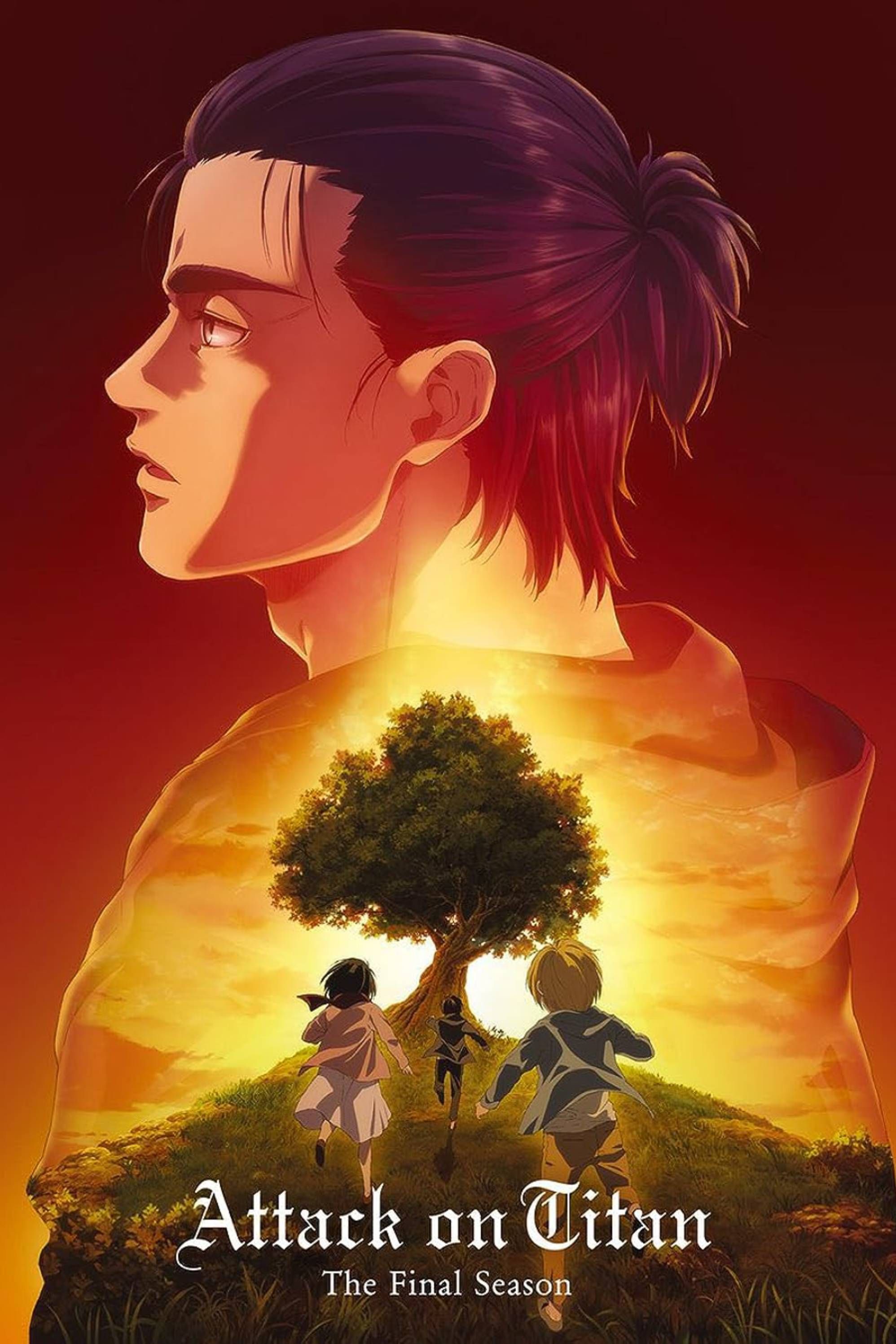
- Release Date
- April 7, 2013
- Studio
- Wit Studio, MAPPA
- Creator
- Hajime Isayama
- Number of Episodes
- 94
- Streaming Service(s)
- Crunchyroll , Hulu
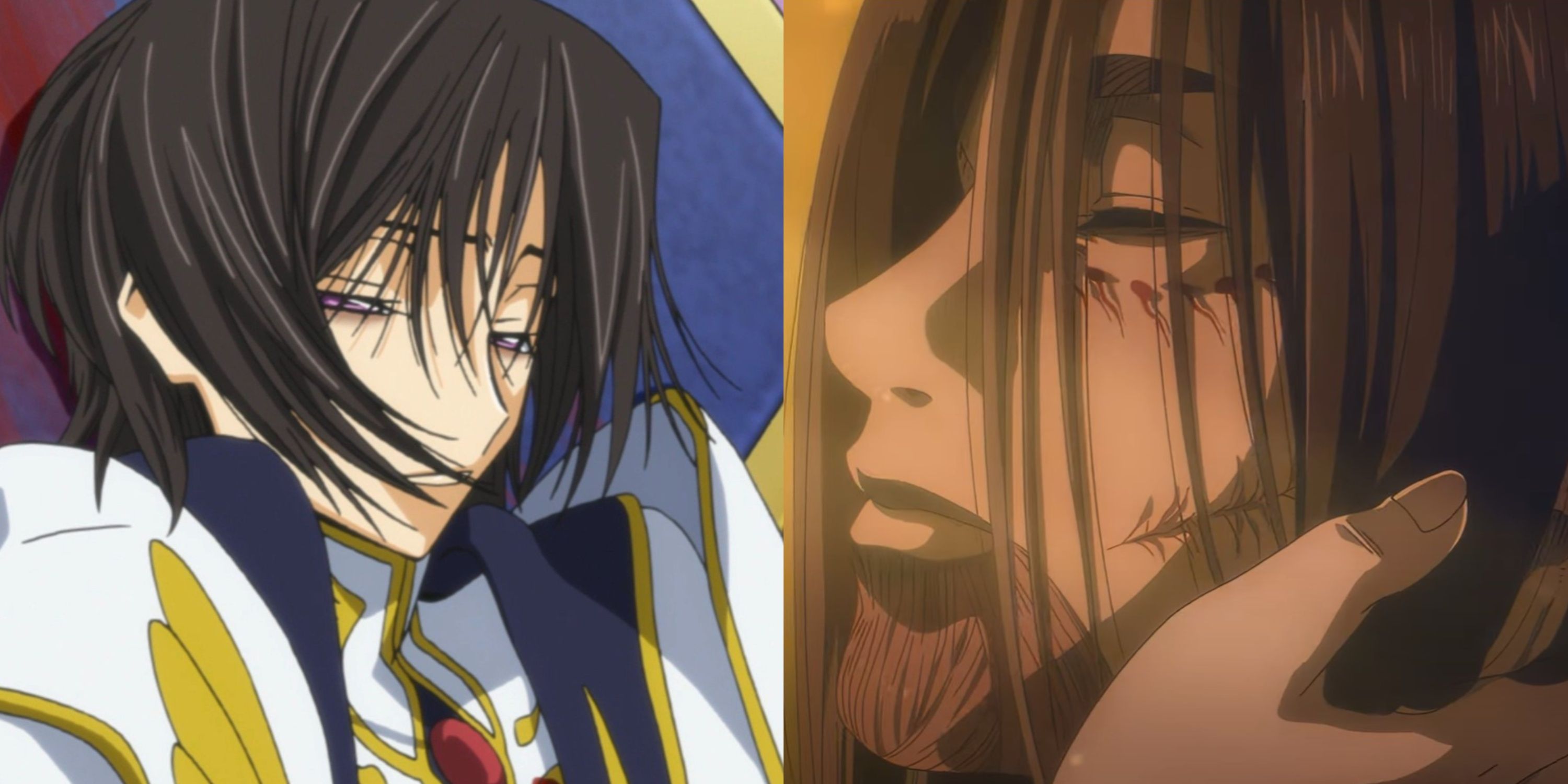
Did Attack On Titan Revamp The Code Geass-Style Ending?
Both critical acclaimed series have endings that feature quite a few common threads, and here's why they both work in their own way.

